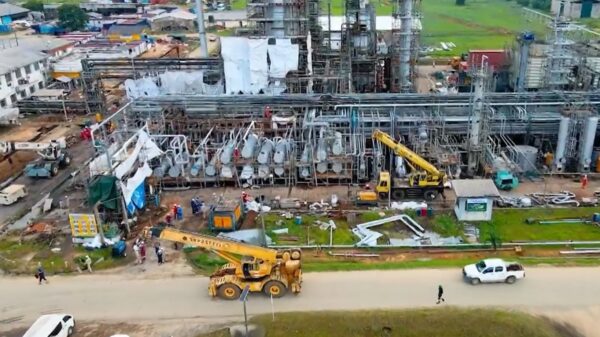Wale Edun, Minister of Finance and Coordinating Minister of the Economy, says the Federal Government is offering businesses including manufacturers in the country credit facilities up to ₦1bn at a 9% interest rate.
The minister, who was a guest on Channels Television’s Sunday Politics programme, said the current administration recognises the challenge of entrepreneurs to access affordable funds for their businesses, hence the initiative.
He said small-scale entrepreneurs can get up to ₦1m in credit facility while larger businesses can access up to ₦1bn at 9% interest rate, which is cheaper than the current interest rate of 26.25 % recommended to commercial banks by the Central Bank of Nigeria (CBN),
Edun said, “The emphasis is on ramping up food production, the emphasis is on dealing with food nutrition and food insecurity.
“Likewise, the emphasis is on helping small-scale businesses through grants, and nano enterprises through grant funding. That is being rolled out and it’s being done in a manner which, as I said before, is a world-class standard where you identify biometrically the person that is the beneficiary and you pay them through a digital process which you can easily reconcile.
“That is the emphasis, to make sure that we ramp up that speed and the scale of the help that is there even loans are 9% for medium scale enterprises, up to 1 million naira for the smaller enterprises and then for the larger enterprises up to 1 billion naira funding at 9% so that those manufacturing firms can invest grow the economy employ people produce more goods that will help to bring down inflation.”
He assured Nigerians that food prices would come down in the coming months.
The minister said though food insecurity is a worldwide phenomenon, the government has dedicated special funding for infrastructure to boost agricultural output.
He said, “Inflation, yes, it is high at 33.65%, food inflation at 40.5% is worrisomely high but the fact is that inflation is coming down, month-on-month. It is slowing and it is expected to reduce as we continue the dry season harvest and then we go into the wet season harvest. That is the place to focus on and a lot of emphasis is being placed on that to get agriculture output up, to get prices down, and that will be a nig factor in bringing down inflation.”
Prices of food and basic commodities have gone through the roof in the last weeks, as Nigerians battle the country’s current economic crisis sparked by the government’s twin policies of petrol subsidy removal and unification of forex windows.
![]()


























































